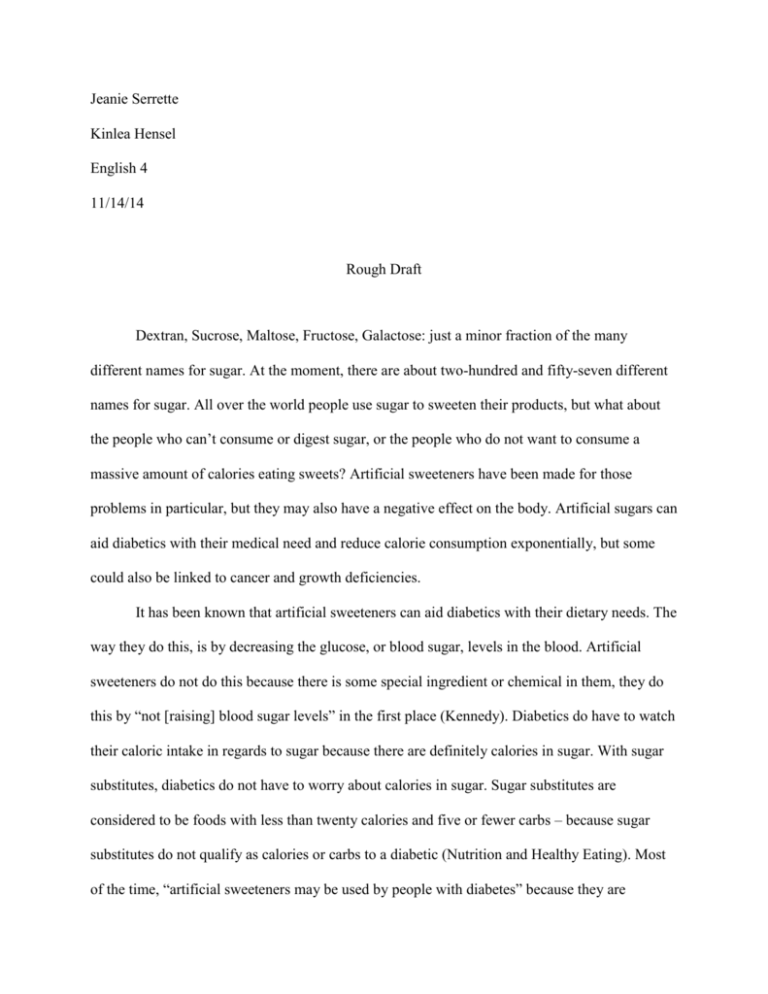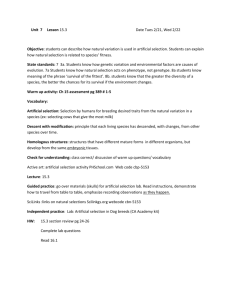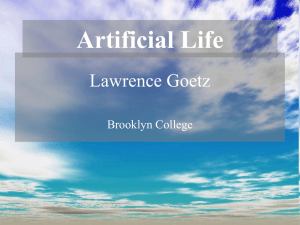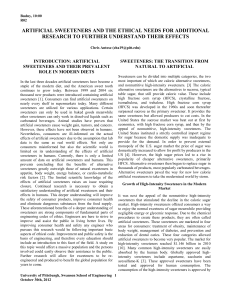File
advertisement

Jeanie Serrette Kinlea Hensel English 4 11/14/14 Rough Draft Dextran, Sucrose, Maltose, Fructose, Galactose: just a minor fraction of the many different names for sugar. At the moment, there are about two-hundred and fifty-seven different names for sugar. All over the world people use sugar to sweeten their products, but what about the people who can’t consume or digest sugar, or the people who do not want to consume a massive amount of calories eating sweets? Artificial sweeteners have been made for those problems in particular, but they may also have a negative effect on the body. Artificial sugars can aid diabetics with their medical need and reduce calorie consumption exponentially, but some could also be linked to cancer and growth deficiencies. It has been known that artificial sweeteners can aid diabetics with their dietary needs. The way they do this, is by decreasing the glucose, or blood sugar, levels in the blood. Artificial sweeteners do not do this because there is some special ingredient or chemical in them, they do this by “not [raising] blood sugar levels” in the first place (Kennedy). Diabetics do have to watch their caloric intake in regards to sugar because there are definitely calories in sugar. With sugar substitutes, diabetics do not have to worry about calories in sugar. Sugar substitutes are considered to be foods with less than twenty calories and five or fewer carbs – because sugar substitutes do not qualify as calories or carbs to a diabetic (Nutrition and Healthy Eating). Most of the time, “artificial sweeteners may be used by people with diabetes” because they are extremely safe for diabetics to consume (Castro). Diabetics are able to eat many of the sweets that other people without the disease can, as long as the sweets are made with an artificial sugar. The beauty of artificial sweeteners is that they allow diabetics to experience normal diets. Even though artificial sweeteners are safe for diabetics, concerns with the labels should be enough encouragement for diabetics to consult with their physician (Castro). Artificial sweeteners have been known to reduce calorie consumption. The reason being that artificial sweeteners contain no calories. People on diets can eat things that wouldn’t be generally healthy if they’re made with “artificial sweeteners, or non-nutritive sweeteners [because they] offer the sweet taste of sugar, but have no carbohydrates or calories” (Kennedy). Eating foods with artificial sweeteners could benefit your overall health because an overconsumption of calories can cause individuals to gain weight, “and because artificial sweeteners have no calories, choosing foods made with artificial sweeteners may lower your calorie intake” (Kennedy). One positive feature that artificial sweeteners have is that they are non-nutritive, which means they have little to no calories, whereas, every gram of sugar contains four calories (Nutrition and Healthy Eating). Throughout the study of artificial sugar, many companies have tried to link them to cancer. When scientists did their research, they only could link artificial sweeteners to cancer in animals. These accusations about cancer in artificial sweeteners occurred when “early studies showed that cyclamate in combination with saccharin caused bladder cancer in laboratory animals (Artificial Sweeteners and Cancer). It’s reasonable to be skeptical of artificial sweeteners if their ingredients tended to show cancer in laboratory animals, but studies in the nineteen-seventies connected saccharin with the growth of bladder cancer in lab rats (Artificial Sweeteners and Cancer). Cancer in rats is quite difficult to link to cancer in humans. Rats and humans aren’t apart of the same genetic family. Even though artificial sugars have been linked to cancer in animals, carcinogenicity studies have not yet clearly associated artificial sweeteners with cancer in humans (Artificial Sweeteners and Cancer). “Human epidemiology studies (studies of patterns, causes, and control of diseases in groups of people) have shown no consistent evidence that saccharin is associated with bladder cancer incidence” (Artificial Sweeteners and Cancer). Artificial Sweeteners are unfortunately linked to major and minor growth deficiencies. Some of the “documented neurological events include vertigo, ringing in the ears, headaches and depression” (Onusic). These symptoms seem very scary but they’ve only occurred when a massive amount of aspartame, which is found in artificial sweeteners, is consumed. Some of the more scary symptoms in the over-consumption of aspartame have been pointed out by the FDA. “The FDA lists more than ninety symptoms of aspartame toxicity, even rashes, cramps and pain in the tendons and ligaments” which could cause discomfort for anyone (Onusic). One of the strange things aspartame does to cause these discomforts is that “[it] releases methanol upon heating and digestion, and methanol poisoning causes headaches, behavioral disturbances and inflammation of the nerves (Onusic). Parents are fairly unaware of what the effects of aspartame in artificial sweeteners can have on their children (Onusic). Aside of all the scary things artificial sugars can cause, they can benefit people’s health. Aspartame has been found to be safe for human consumption by the regulatory agencies of more than ninety countries worldwide (Shermer). “Aspartame is safe for everyone except people who have the genetic disorder phenylketonuria” which is the only real threat that artificial sweeteners pose on humans (Shermer). Of course if used too much, artificial sweeteners can cause some dietary problems like any food. According to statistics “children’s brains are four times more susceptible to damage from excitotoxins than the brains of adults, and they react with ADDADHD-type symptoms, impaired learning, depression and nausea” (Onusic). Along with impaired learning in children, the aspartame in artificial sugars may cause “seizures and other mental symptoms associated with [it, and] consumption [is] related to low serotonin resulting from the phenylalanine component” (Onusic). These situations were to only occur if an individual were to eat massive amounts of aspartame at one time. Everything is okay in moderation. Artificial sweeteners have both positive and negative effects. They are used to reduce calorie consumption and aid diabetics’ dietary needs; however, they can also can be linked to cancer as well as growth deficiencies. Diabetics can actually eat things that are sweet without overloading their bodies with the glucose that they cannot digest. Artificial sweeteners significantly reduce the amount of calories that are in many different foods, mainly soft drinks. On a more negative note, artificial sweeteners have been linked to cancer in studies on animals. They also tend to cause growth deficiencies in infants. As long as they are used sparingly and have been deemed safe, artificial sweeteners can be a great addition in anyone’s diet. Works Cited "Artificial Sweeteners and Cancer." Cancer. National Cancer Institute, 5 Aug. 2009. Web. 22 Oct. 2014. Castro, Regina. "Diabetes." Artificial Sweeteners: Any Effect on Blood Sugar? MayoClinic, 19 Mar. 2013. Web. 22 Oct. 2014. "Nutrition and Healthy Eating." Artificial Sweeteners and Other Sugar Substitutes. MayoClinic. 6 June 2014. Web. 22 Oct. 2014 Onusic, Sylvia. "Violent Behavior: A Solution in Plain Sight." Weston A Price. Weston A Price. 22 Apr. 2013. Web. 22 Oct. 2014. Shermer, Michael. "Artificial Sweeteners: Is Aspartame Safe? Science-Based Medicine” Science-Based Medicine. Artificial Sweeteners: Is Aspartame Safe? Science-Based Medicine. 4 Oct. 2011. Web. 22 Oct. 2014.




